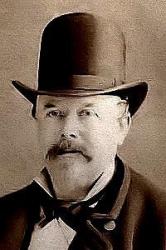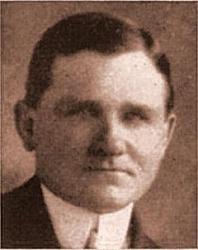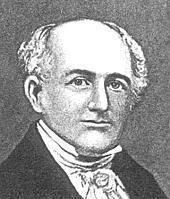Planning worship?
Check out our sister site, ZeteoSearch.org,
for 20+ additional resources related to your search.
- |
User Links
Person Results
Wilhelm A. F. Schulthes

1816 - 1879 Composer of "LAMBETH" in Hymns of Grace Wilhelm August Ferdinand Schulthes Germany 1816-1879. Born at Hesse Castle, Germany, son of a German army officer, he was raised Lutheran, but turned to Roman Catholicism around 1852. He directed the Brompton Oratory choir (1852-1872). He taught music at the Convent of the Sacred Heart, Roehampton (1868-1879). He also wrote poetry. No information found regarding family or other life events. He died at Bois-de-Colombes, France.
John Perry
Wilhelm A. F. Schulthes
Flavil Hall

1876 - 1952 Arranger of "[Why do we mourn departing friends]" in Perfect Praise Flavil Hall was born June 22, 1876 near Trion, Georgia. He began preaching for the Church of Christ there in 1896, and later attended the Nashville Bible School. His gospel meeting work was extensive, and led him to extended stays in Michigan and Ohio as well as in the Southeast. Though primarily a pulpit minister, Hall's firm opposition to instrumental music in worship caused him to devote considerable time to teaching singing schools, sometimes in conjunction with his gospel meetings, in order to build up congregational singing and train song leaders. Hall died August 16, 1952 in Greenville, Alabama. He authored two collections of devotional poetry, Pearls of Truth (Cincinnati: F. L. Rowe, 1913), and Pearls of Grace and Glory (Pine Apple, AL, 1950), and Hall's Rudiments of Music (Cincinnati: F. L. Rowe, 1925).
Scott Harp, "Flavil Hall", History of the Restoration Movement. https://therestorationmovement.com/_states/georgia/hall,fj.htm
--David Russell Hamrick
Flavil Hall
Abner Kneeland

1774 - 1844 Person Name: Kneeland Alterer of "Why should we mourn departing friends" in Hymns Kneeland, Abner, born in 1774, was noted for his religious changes, most of which may be traced through his hymns. He contributed 147 pieces to the American Universalist's Hymns composed by different Authors, 1808; and also edited The Philadelphia Hymn Book, 1819, and Hymns for the Use of those who are Slaves to no Sect, in 1834. In 1836 he underwent a trial at Boston for blasphemy. He died in 1844.
--John Julian, Dictionary of Hymnology, Appendix, Part II (190
==============================
Kneeland, Rev. Abner. (Iowa, 1774--1844, Salubria, Iowa). A Universalist miniter, one of the editors of the collection Hymns composed by different Authors, by order of the General Convention of Universalists of the New England States, 1808, to which he contributed 138 hymns, of poor quality. He resigned from the Universalist ministry in 1829 and became lecturer to a society of Freethinkers in Boston, and began publication of a periodical called the Investigator. In 1833 he was indicted on a charge of blasphemy and served a prison sentence. On his release he returned to Iowa, then a territory, and established a free-thinking colony which he called Salubria. His hymn beginning "Mediator, Son of God" is included in Church Harmonies: New and Old, 1895.
--Henry Wilder Foote, DNAH Archives
Abner Kneeland
Robert Boyd
Person Name: Boyd Composer of "NEW ORLEANS" in The Southern Harmony, and Musical Companion (New ed. thoroughly rev. and much enl.)
Robert Boyd
John Clements
Person Name: J. C. Author (chorus) of "Some Glad Day" in The Gospel Trumpeter
John Clements
V. Paul Jones
Composer of "[Why do we mourn departing friends]" in The Gospel Trumpeter Early 20th Century
V. Paul Jones
E. Heritage
Person Name: E. Heritage, Philadelphia Composer of "BEREAVEMENT" in The Social Harp Elphrey Heritage lived in Philadelphia, was associated with the publisher S. C. Collins of that city, and composed hymn tunes that appeared inter alia in The Hesperian Harp (1848), The Timbrel of Zion (1853), and The Social Harp (1855). He was the brother of Jason Heritage of New Jersey. (Source: Daniel W. Patterson's "Introduction" to the 1973 reprint of The Social Harp, xii-xiii)
E. Heritage
Justin Heinrich Knecht

1752 - 1817 Person Name: Justin H. Knecht Composer of "DOMINE, CLAMAVI" in The Lutheran Hymnal Justin Heinrich Knecht Germany 1752-1817. Born at Biberach Baden-Wurttemberg, Germany, he attended a Lutheran college in Esslingen am Neckar from 1768-1771. Having learned the organ, keyboard, violin and oratory, he became a Lutheran preceptor (professor of literature) and music director in Biberach. It was a free imperial city until 1803 and had a rich cultural life. He became organist of St. Martin’s Church in 1792, used by both Lutherans and Catholics, and was there for many years. He led an energetic, busy musical life, composing for both the theatre and church, organizing subscription concerts, teaching music theory, acoustics, aesthetics, composition, and instruments at the Gymnasium, affiliated to the Musikschule in 1806. He went to Stuttgart in 1806 in hopes of a post there as Kapellmeister, serving two years as Konzertmeister, but he was appointed Direktor Beim Orchester by the King of Wurttemberg in 1807. However, he returned to his former life in 1808 and remained there the rest of his life. He died at Biberach. He wrote 10 vocals, 11 opera and stage works, one symphony, 3 chamber music instrumentals, 7 organ works, 4 piano works, and 6 music theories. He was an author composer, editor, contributor, musician, compiler, and lyricist.
John Perry
Justin Heinrich Knecht


 My Starred Hymns
My Starred Hymns

